Man of the West (1958)
“There’s a point where you either grow up and become a human being, or you rot like that bunch.”
|
Synopsis: |
|
Genres, Themes, Actors, and Directors:
Response to Peary’s Review: He adds that the “shootouts are inevitable and exciting,” and points out that “Cooper is not happy to fight [John] Dehner because he is the man Cooper would have been if he hadn’t deserted Cobb years before.” He writes that “as in most Mann films, there are two men with similar backgrounds, one who chose to put away his guns as the West became civilized and one who chose to keep being an outlaw, which, in Mann’s films, made his demise inevitable.” Peary goes on to write that “this picture is also similar to other Mann films because the rugged outdoor landscapes provide the characters with the appropriate environment for uncivilized behavior.” He points out that “the film’s most notorious, most publicized scene has [Jack] Lord forcing [Julie] London to strip to her underwear” — and, as “an enlightened hero, Cooper realizes London’s humiliation… and gets revenge on Lord later by making him strip while she watches.” Peary concludes his GFTFF review by noting that this remains “a solid, smart western” with “impressive CinemaScope photography” by Ernest Haller, but he argues that “Cooper shouldn’t be a ‘hick’ in the opening scene.” Peary elaborates on his thoughts about this film in his first Cult Movies book, where he describes it as a “beautifully filmed, bloody, unsparing western, replete with interesting, complex characters and exciting situations,” and notes that “if it has a major flaw it comes at the beginning,” given that Cooper plays these scenes “as if he were Longfellow Deeds once again.” He adds, “Having [Cooper] come across as being so gullible and innocent that Sam [O’Connell)] and Billie [London] would attempt to wheedle him out of [his] money… is completely deceptive on Mann’s part.” “If this naive-chump bit were an act by Link to cover up his identity” (which is how I ended up interpreting it) “it would make sense, but it’s for real” (how does Peary know?), and “when we discover that Link used to be a hardened criminal, these early scenes come across as ridiculous.” While “Mann might have been trying to get us to believe Link a weakling so we would be pleasantly surprised later in the film when we see him do heroic deeds,” he asserts that the “change here is too drastic.” I would ultimately agree; regardless of Mann’s motivation, the character shift for Cooper isn’t seamless — though it’s easy enough to forget about the earlier scenes once we enter the “tense melodrama” of “the cabin scenes,” which Mann likened to “those in Key Largo (1948).” Unfortunately, less easy to forgive is Cobb’s overly theatrical performance as the psychotic head honcho of the Tobin gang. Not helping matters any is the fact that 57-year-old Cooper was 10 years older than 47-year-old Cobb in real life, despite playing his adopted son. However, there’s enough to recommend in this dark western by master-director Mann to make it worthy as once-must viewing. Redeeming Qualities and Moments:
Must See? Categories
(Listed in 1001 Movies You Must See Before You Die) Links: |
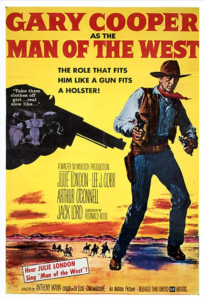
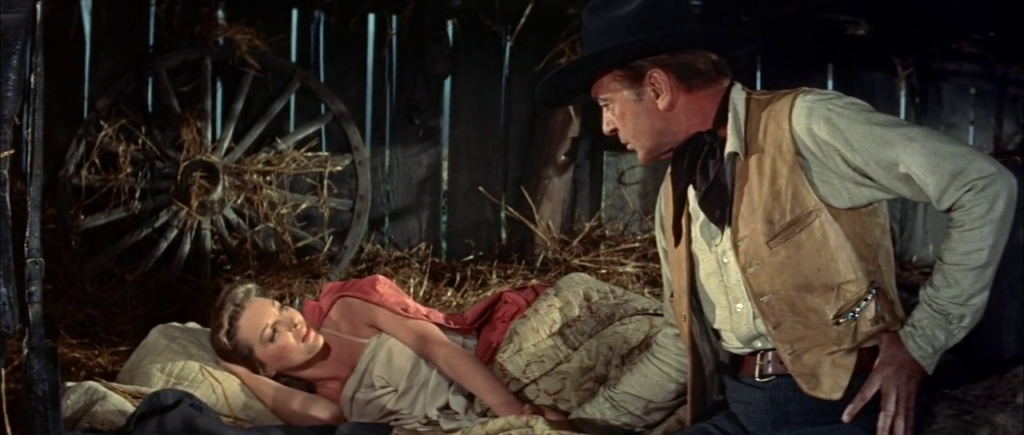
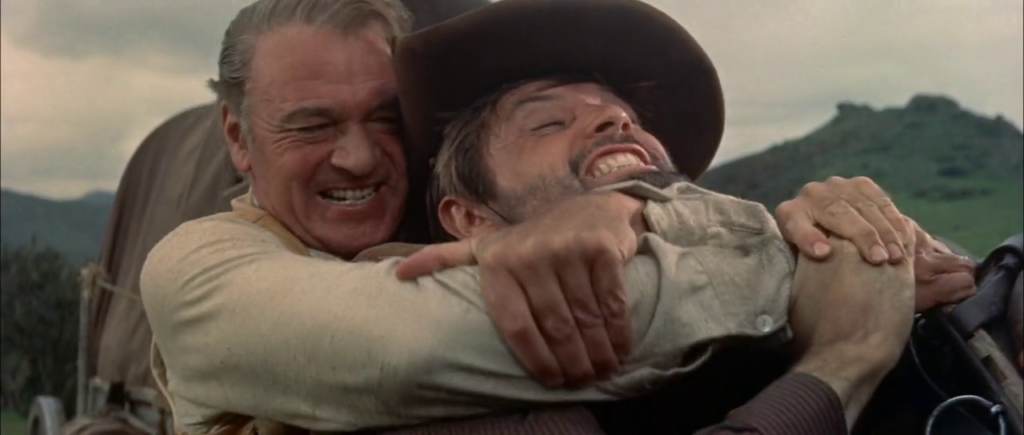
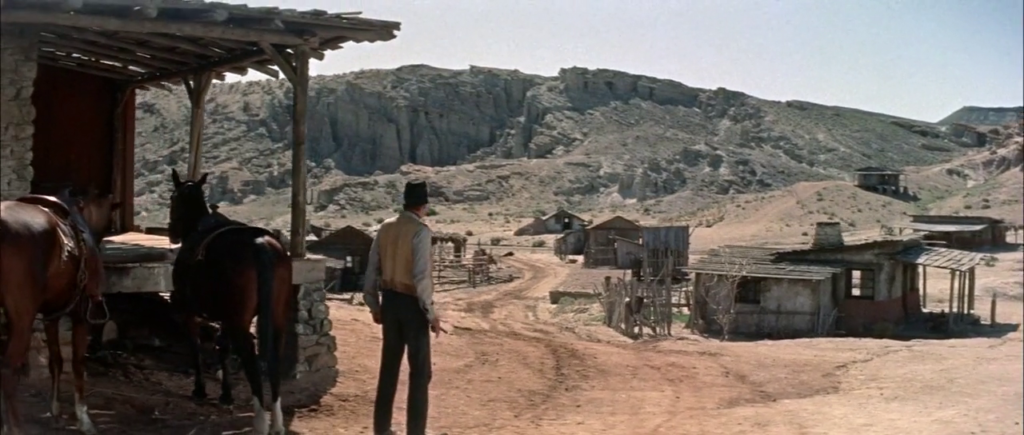
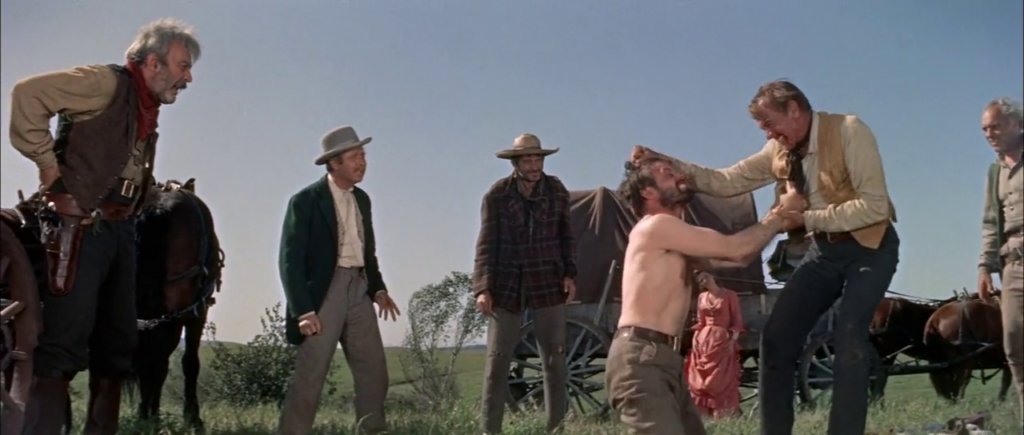
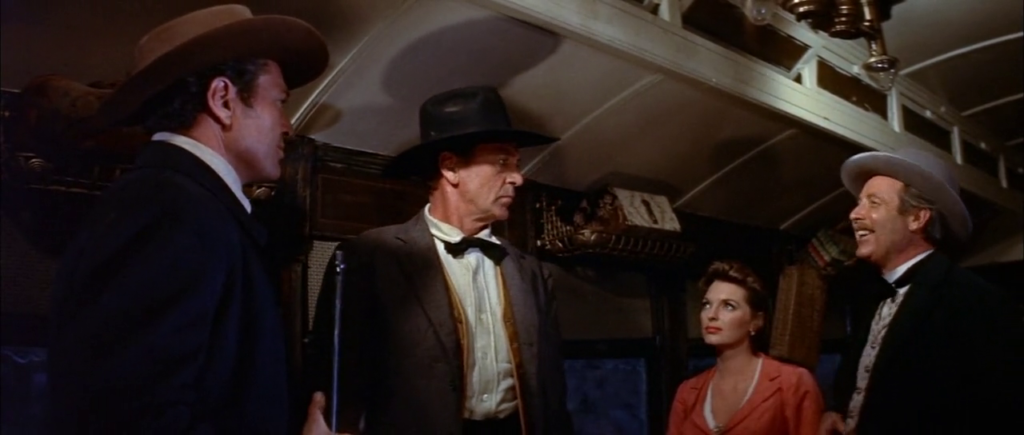
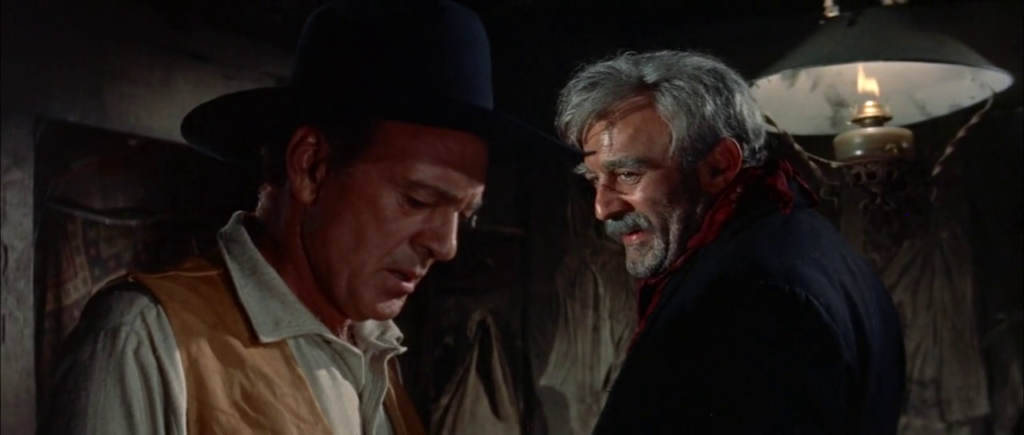
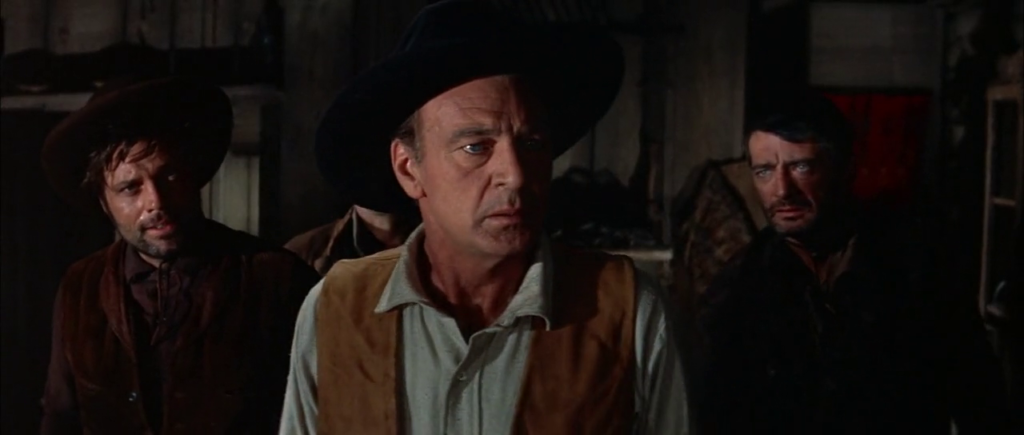
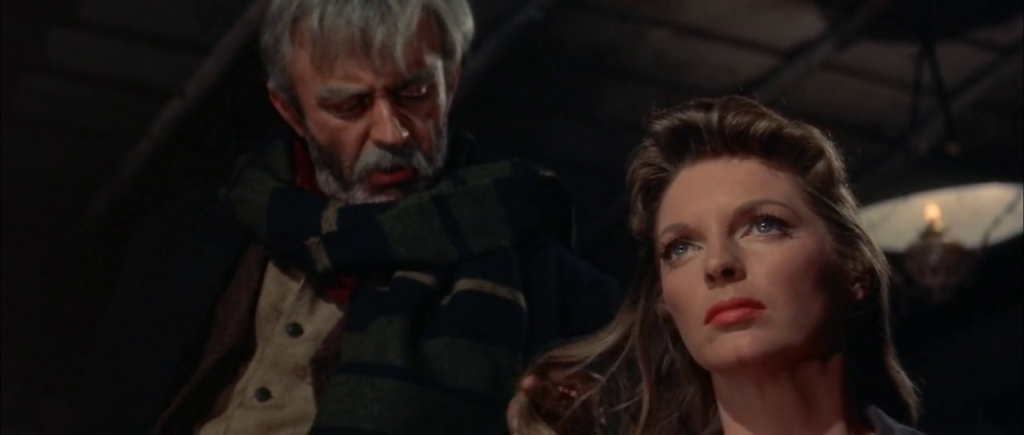
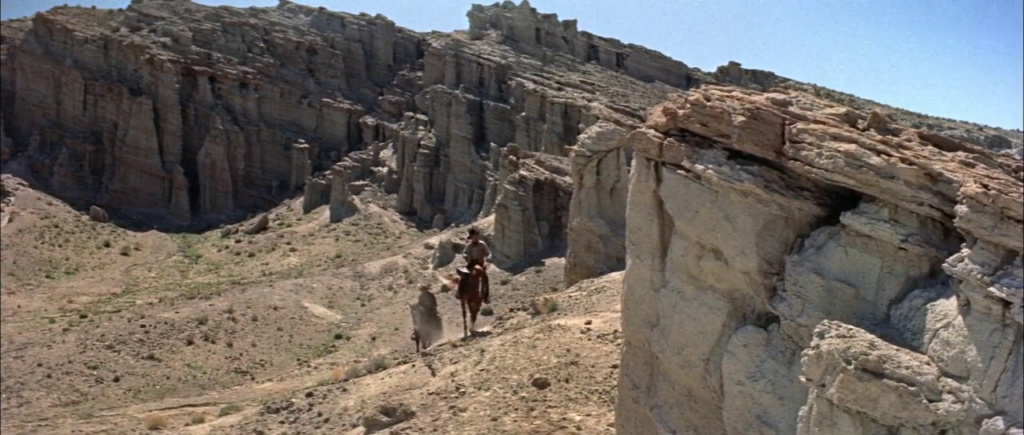
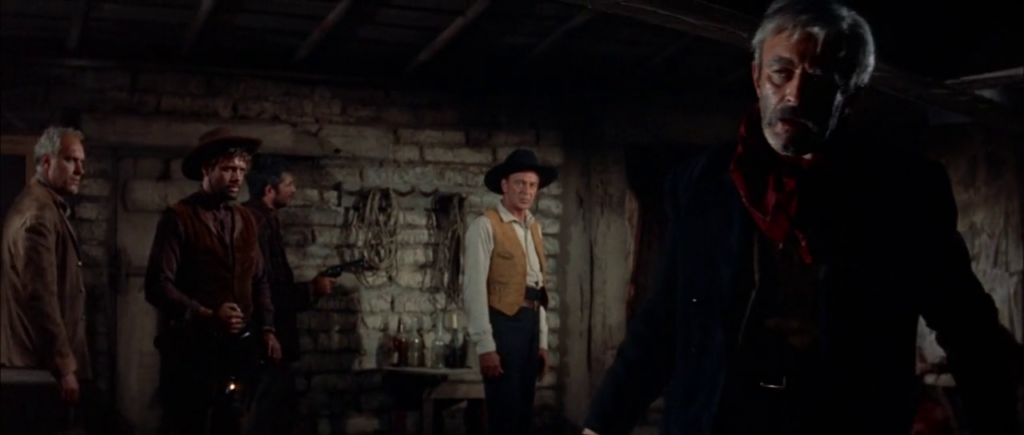
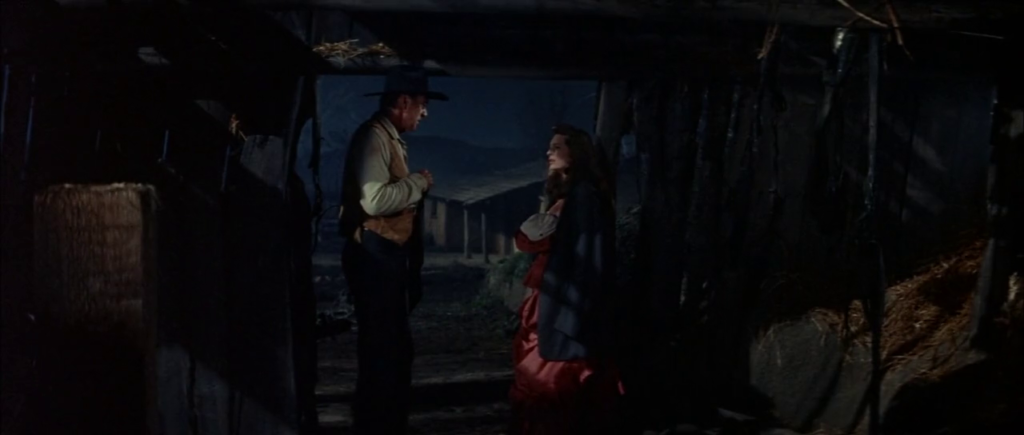
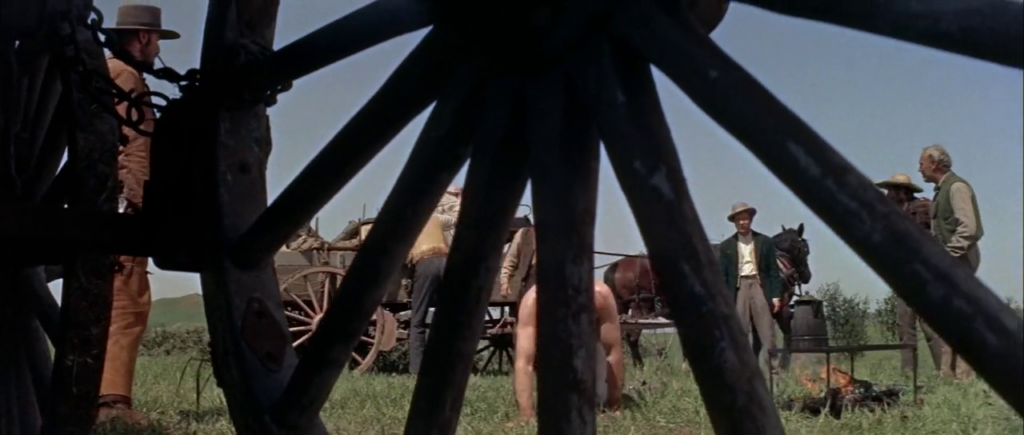
One thought on “Man of the West (1958)”
Agreed – a once-must, as a western that merits attention. As per my 1/20/20 post in ‘The ’40s-’50s in Film’ (fb):
“Then one day I grew up. There’s a point where you either grow up and become a human being or you rot, like that bunch.”
‘Man of the West’ (1958): Gary Cooper delivers one of his best performances as a man with a past as an outlaw – trying to re-establish himself in honorable society – who accidentally falls into the path he ran away from…and the family member (Lee J. Cobb) who taught him every unlawful thing he knew. The script is an adaptation by Reginald Rose, who wrote ’12 Angry Men’.
By the time this film went into production, director Anthony Mann had made 8 films (5 of them westerns) with James Stewart. What they achieved in very memorable westerns matches what Randolph Scott achieved with Budd Boetticher. Reportedly, the two unfortunately had creative run-ins on their last film – as a result, Mann did not show Stewart the ‘MOTW’ script. It’s also been said of Mann that he thought Stewart would not have been suitable for what Cooper eventually played. …And (as much as I like Stewart) I would have to agree. I’m not a huge fan of Cooper but I like him quite a bit in some things. His grit and determination in ‘MOTW’ are reminiscent of his work in ‘High Noon’. But there’s also a needed, vaguely erotic element (due to his peripheral situation with Julie London) that Stewart may not have been able to play convincingly enough. (London must also undergo – in a sequence that, in its day, may have been pushing the envelope – a rather humiliating command to strip.) As Cooper’s dastardly uncle, Cobb seems to overplay his ‘bad guy laugh’ a bit but that’s the film’s only noticeable drawback. Otherwise, it benefits from strong dialogue and contains a number of real surprises. ‘MOTW’ was not generally well-received on its release but time seems to have been extremely kind to the film; it has ultimately gained (and deserved) a fine reputation.